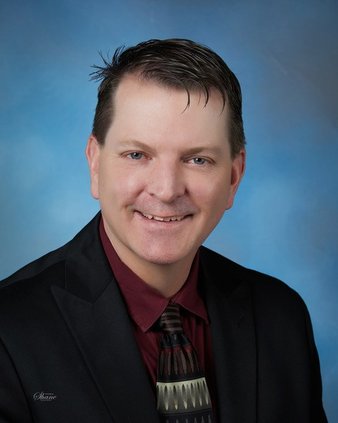If a three-pronged wish-list could come true, Jason Murray believes a local scholarship program could be revived, while simultaneously, area residents would learn more about a state effort to curtail brain drain throughout Kansas.
As executive director of the Golden Belt Community Foundation (GBCF), Murray is eager to re-invigorate the local Come Home Reverse Scholarship fund and spread the word about the Rural Opportunity Zone (ROZ) program at the Kansas Department of Commerce.
One of the three goals is to form a small task force in each of the four counties in GBCF’s service territory – Barton, Pawnee, Rush and Stafford.
“Ideally, we would have five people in each of these counties study the out-migration issue and spread the word in their communities,” Murray said. “We are recruiting government officials, business owners, and representatives of education and healthcare to share their time and expertise.
“Task force members should be energetic and hungry to find a solution through ideas and action. They should be visionaries who can be held accountable for reaching goals.”
A second priority is to raise money for the Come Home scholarship; the fund currently stands at $5,800.
“We need to have enough funds available to give prospective applicants an incentive to participate in this potentially great program,” Murray noted.
This scholarship fund, which is financed only through private donations, is designed to benefit fairly recent graduates who face student-loan debt. Grants are paid directly to the loan holder over a five-year period.
Each award could be up to $10,000.
A traditional scholarship helps support a student only during post-high school education, whether it be a college or trade school.
“Maybe we could establish scholarships that not only help with higher- education costs but also pledge an amount for partial debt repayment if the student returns to one of our four counties,” Murray suggested. “This could be another incentive to ‘come home.’” Rural Opportunity Zone (ROZ)
The state’s Rural Opportunity Zone program is the third prong in Murray’s campaign. ROZ offers incentives for new full-time residents, including up to $15,000 in student loan repayment assistance over five years.
New residents also may be eligible for a 100 percent personal state income-tax credit.
“As it stands now, only two of our four counties support ROZ,” Murray noted. “Pawnee contributes $1,500 and Rush $3,000. Since Barton and Stafford counties’ participation is determined by sponsorships, the amount involved is not readily available.
“I plan to visit with county commissioners, requesting they get behind this program. I also want to meet with city councils and school boards. We need to get young, educated people back into our communities.”
Murray complimented recent local efforts to attract people to central Kansas. These include increased daycare options and the Ignite Rural Business Competition.
“These are just a couple of examples of projects that add to the fabric of our community,” he commented. “But we need to enhance other efforts to bring people back home so they can take advantage of these attractions.
“We must recruit new residents who will add to our tax base and give something back. We must find ways to fight the brain drain.”
The focus should be on housing, schools, healthcare, food sources and infrastructure quality.
“Without these pillars, young people have a difficult time finding a viable reason to move here,” Murray commented. “We need to act before it is too late.”
The average age in rural communities is 51; in urban areas it is 46.
“This is a sign that rural communities are in danger of aging themselves into a downward spiral,” Murray said. “We need young leaders, educators and entrepreneurs to have a successful, sustainable future.
“We encourage individuals and businesses to be creative in figuring out how not to just hold on to what we have but how to thrive and build on opportunities for young people.”
At more than $30 million in total assets and more than 200 funds under management, the Golden Belt Community Foundation has been connecting people who care to causes that matter since 1996. Golden Belt Community Foundation exists to provide non-profit organizations in central Kansas with a permanent source of support and to serve as a vehicle for charitable giving for donors. GBCF serves the counties of Barton, Pawnee, Rush, and Stafford. For more information about Golden Belt Community Foundation, call (620) 792-3000 or visit their website at www.goldenbeltcf.org.





